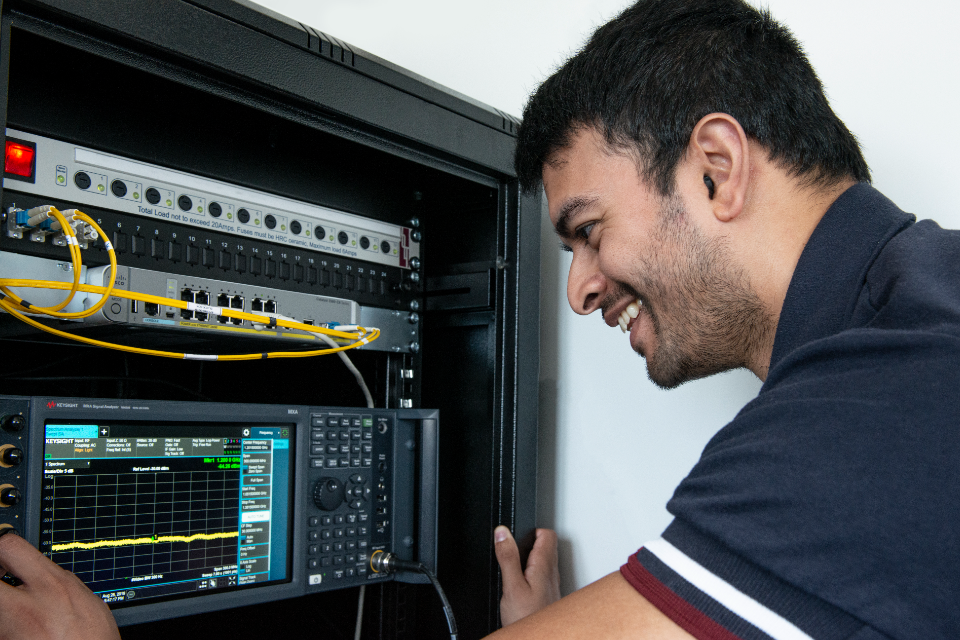Platform Systems
Updated 29 November 2023
The Platform Systems division of the Defence Science and Technology Laboratory (Dstl) brings together science and technology based around the platforms that are used by our armed forces, and the mission systems and weapons systems that are linked to or integrated within them. Examples of platforms include military vehicles like tanks or fighter jets.
We primarily support the front line commands (Army, Navy and Air Force), providing advice and solutions when there are gaps in the capability of platforms, to help ensure the UK retains its battle-winning advantage and to maintain national security. Our work also includes ways to keep safe both the platforms and the military personnel who use them.
We:
- cover a broad range of technical research areas, employing specialists in everything from flight science to radio-frequency engineering.
- provide impartial, evidence-based analysis to support high priority decision-making, including influencing the design of future combat and deterrent systems
- evaluate exciting new capabilities and technologies, anticipating the next generation of challenges and potential solutions
- work closely with the front line commands, including having service personnel embedded within our teams, and involved in development and testing at all stages
- collaborate with other government departments, industry and academia, both within the UK and internationally
- work on complex, high-impact and sometimes top-secret programmes that help keep the UK and our armed forces safe
Areas we cover
Within Platform Systems we have specialist groups that each take the lead on a specific aspect of our science and technology work.
Above Water
The Above Water Group ensures the right science and technology can be integrated into maritime platforms from border patrol vessels to aircraft carriers. Our knowledge of the maritime domain ranges from weapons and sensing to operations, information systems and open architectures. We also provide maritime engineering for above and underwater platforms, and through our team embedded in the Maritime Warfare Centre we provide operational analysis support to the Royal Navy.
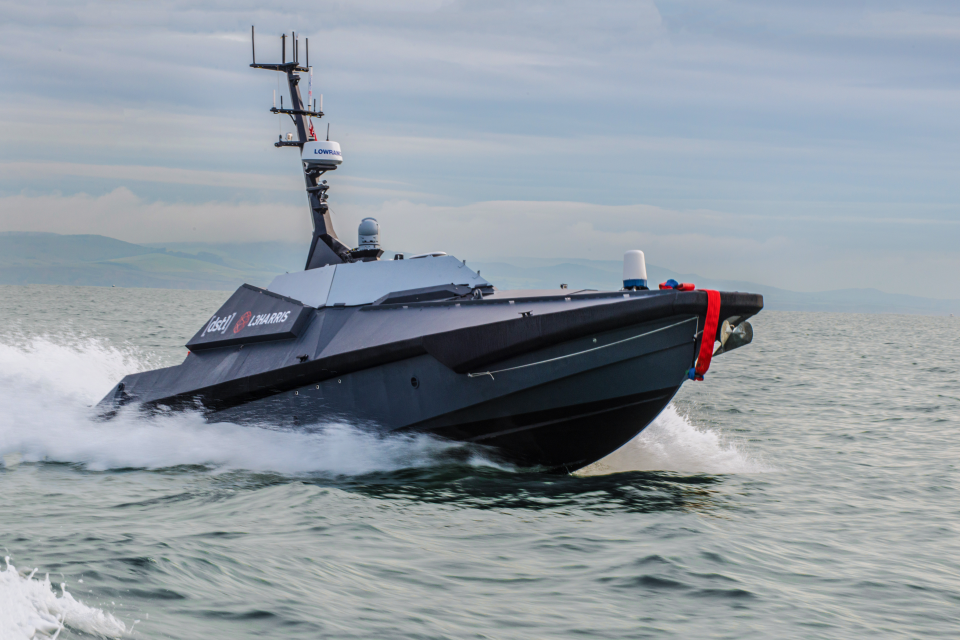
Aerospace Systems
The Aerospace Systems Group develops and exploits science and technology for the MOD’s combat air, rotorcraft and novel autonomous air systems, providing independent support and advice to the armed forces. Our expertise includes flight science, propulsion, concept development, performance engineering, mission systems, analysis and platform integration. We are involved in key UK programmes such as the Tempest Future Fighter, Future Vertical Lift capability and the new Autonomy Lab. We are also embedded in international programmes (including the US Joint Strike Fighter), in command headquarters (such as the RAF Rapid Capabilities Office), and in operational bases directly supporting in-service platforms.
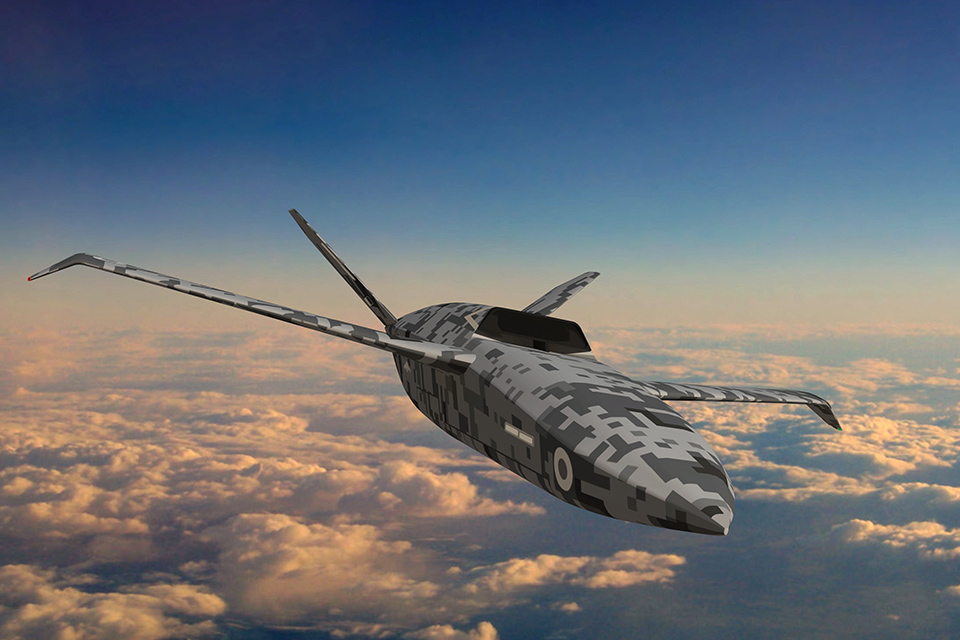
Air and Maritime Group
The Air and Maritime Group helps the armed forces, MOD and wider government understand current and future challenges and make critical, high-impact decisions, such as procurement, policy and operational decisions. To do this, we provide a broad range of impartial, innovative, evidence-based analysis, develop innovative analytical tools and techniques, and advise on how to maximise the performance of the whole system-of-systems across MOD and government.
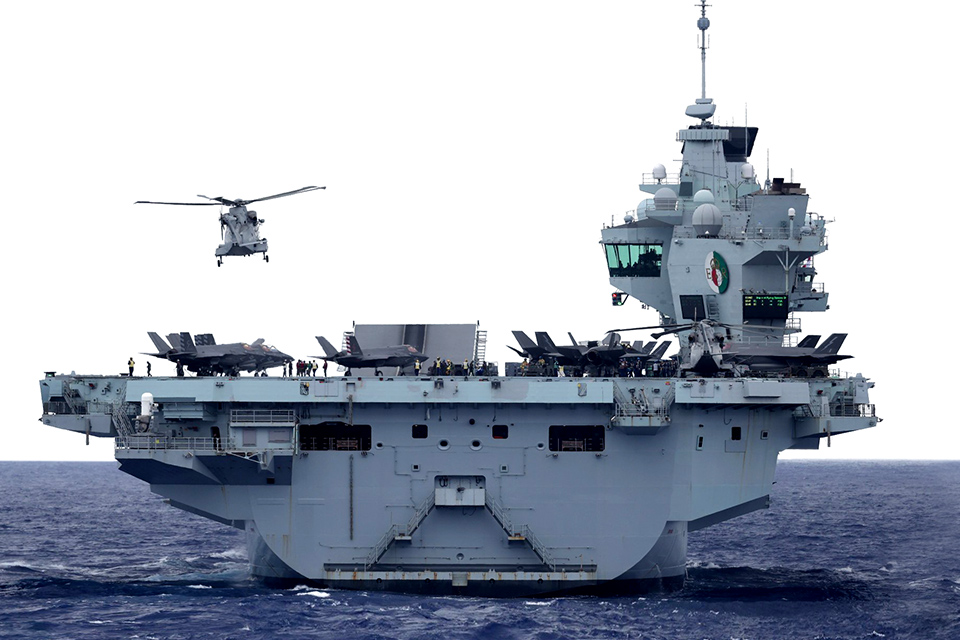
Autonomous Systems Group
The Autonomous Systems Group provides technical advice, guidance and leadership relating to autonomous systems, supporting decisions to ensure a safe and effective capability in the hands of military personnel. Emerging systems will provide a genuine advantage in a complex future where action will happen at a speed and scale which requires human-autonomy teaming in order to not just understand the now but also to rapidly explore and predict the outcome of proposed actions in specific environments. We provide assessment and testing of systems to be deployed in the near future while continuously pushing the development of emerging defence and security-focused technologies.
Uncrewed Ground Vehicles: Tested to the Extreme
Electromagnetic Protection
The Electromagnetic Protection Group provides specialist technical advice and operational support on the detection and defeat of electro-optical and radio frequency guided threats to airborne and maritime platforms. The group assesses threat warning and countermeasure effectiveness, develops novel detection and countermeasure concepts, advises on the use of sensitive military equipment, gives advice for ensuring mission success and provides a lead to UK industry, to ensure sustained protection against current and future electromagnetic threats.
Land Environment
Like Air and Maritime Group, the Land Environment Group helps the armed forces, MOD and wider government understand current and future challenges and make critical, high-impact decisions, such as procurement, policy and operational decisions. To do this, we provide a broad range of impartial, innovative, evidence-based analysis, develop innovative analytical tools and techniques, and advise on how to maximise the performance of the whole system-of-systems across MOD and government.
Land Platforms
The Land Platforms group provides a mix of computational modelling, systems engineering, systems analysis and operational analysis, to advise MOD and wider government on the specification, testing and suitability of land platform systems procurements. We research future land platform solutions, developing and assessing concept vehicles (physical and simulated) to meet future requirements.
Redefining Mobility: The MTR (Mobility Test Rig)
Physical Sciences
The Physical Sciences Group brings together all aspects of physical sciences inside Platform Systems. We carry out research and provide advice and support across a wide spectrum of defence-related science and technology areas, including:
- acoustics
- blast and improvised explosive devices (IED)
- artificial intelligence (AI) and data science,
- corrosion
- force protection engineering
- future technologies
- injury analysis
- advanced materials
- mounted and dismounted armour technology
- numerical computer simulation
- power supplies and structures
Platform Survivability
The Platform Survivability Group help keep the UK armed forces safe by researching and developing answers to the threats and hazards they face. We influence how survivability capability is integrated into the design of future combat systems and provide new defensive measures for existing ones.
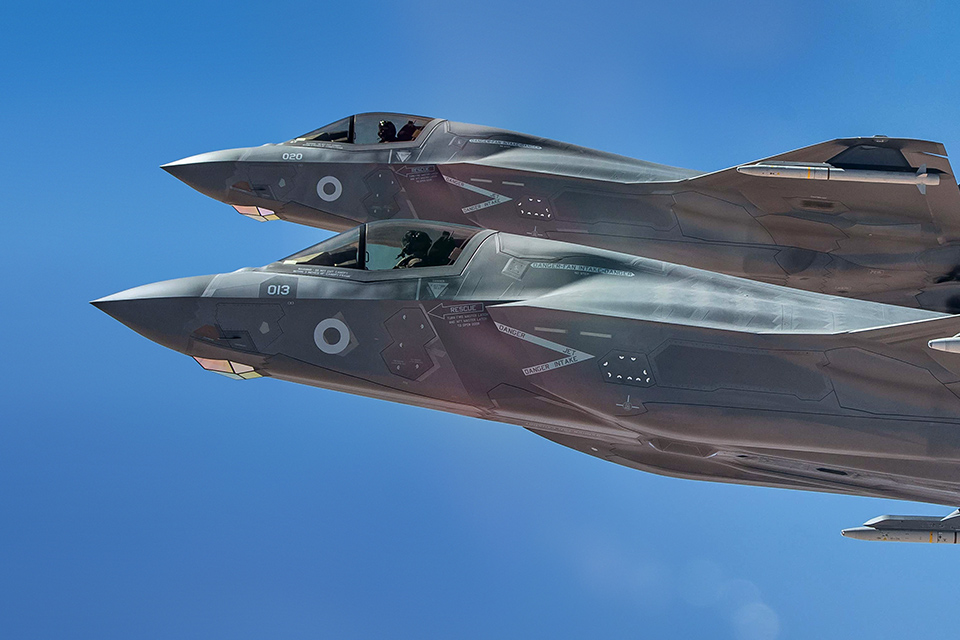
Strategic Systems
The Strategic Systems Group advises on all aspects of ballistic missile defence, to help anticipate the next generation of strike and defensive missile systems, and maintain the UK’s missile defence and strategic deterrent capabilities. Using techniques such as modelling and simulation, and our deep technical knowledge of systems such as radar, we provide evidence-based science and technology and advice to ensure the safety of the UK.
Threat Evaluation
The Threat Evaluation Group is responsible for assessing threats and working out how to keep our people safe. Our complex, fast-paced and innovative work involves undertaking weapons assessments, finding vulnerabilities and helping develop countermeasures to defeat them.
Underwater
The Underwater Group works closely with embedded serving Royal Navy personnel to provide advice, research, specialist services and operational support. The group is responsible for a range of capabilities in the underwater environment that support submarines, surface ships, Merlin helicopters, P-8A maritime patrol aircraft, autonomous systems, military diving and maritime environmental management.
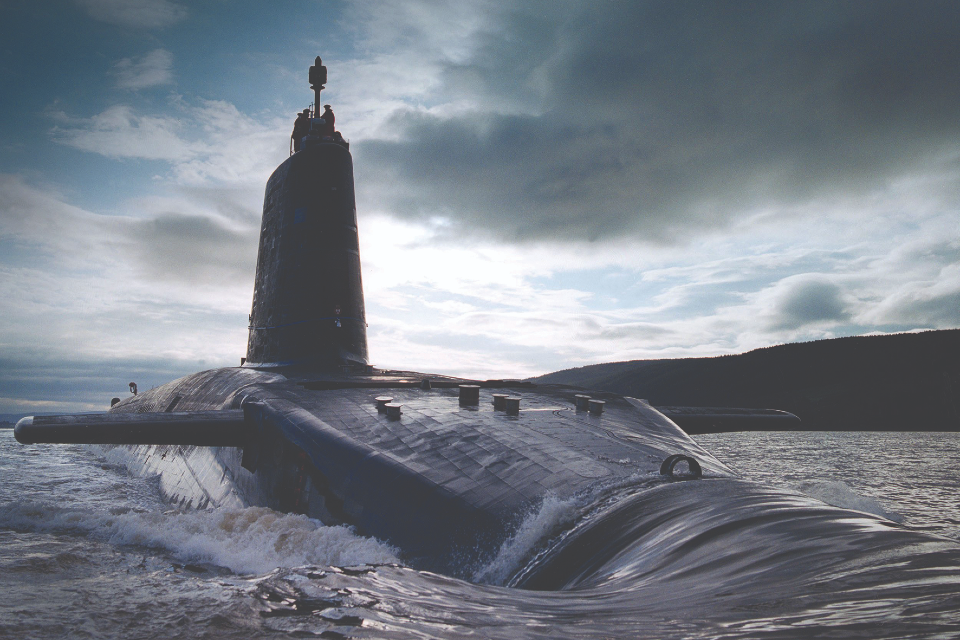
Weapons Systems
The Weapons Systems Group help MOD by assessing, understanding and demonstrating new technologies and how systems can be integrated across environments (domains). We aim to create common, modular and re-usable technologies and systems. Our work includes guidance, navigation, control, novel and laser effects, human integration, networking and hypersonics. We also link with other technology and information programmes.
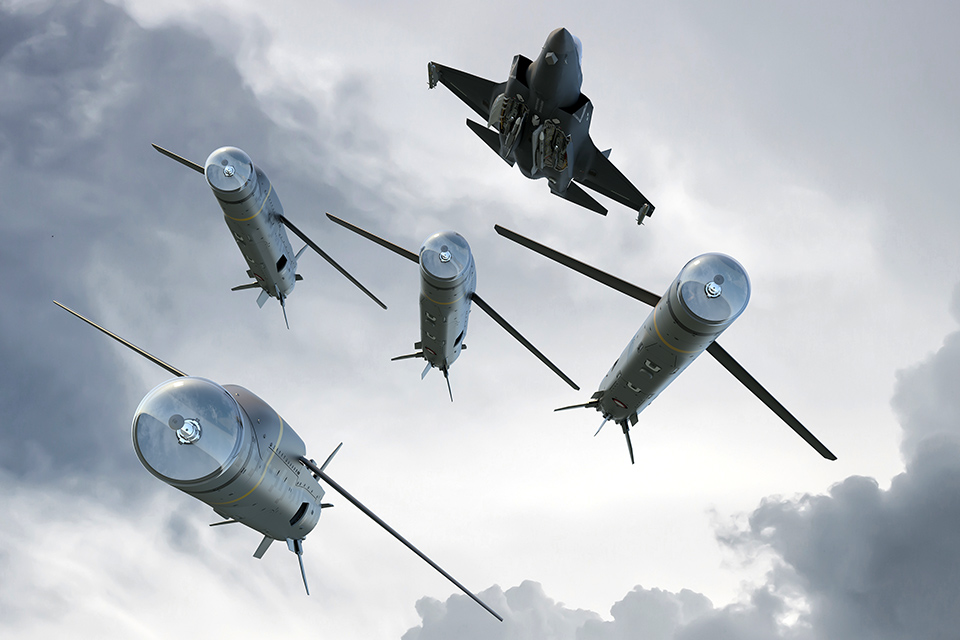
Careers at Dstl
If you want a varied, interesting workload and to help us solve complex problems with real-world impact, search all our available roles and sign up for new job alerts.
Find out more about Dstl and the benefits of working for us.
